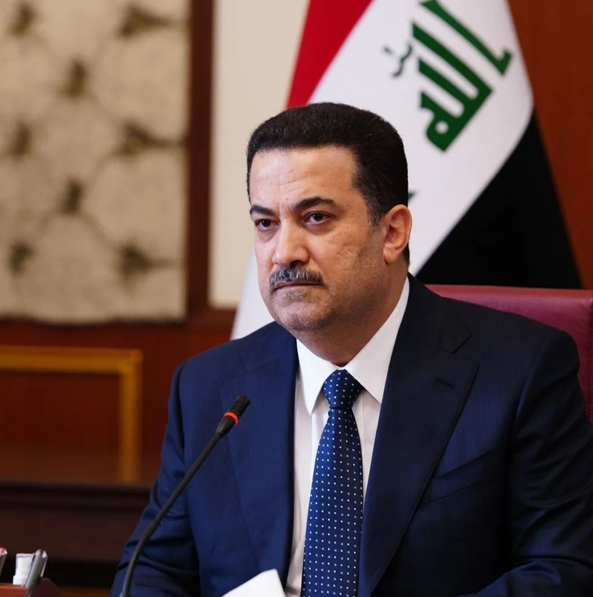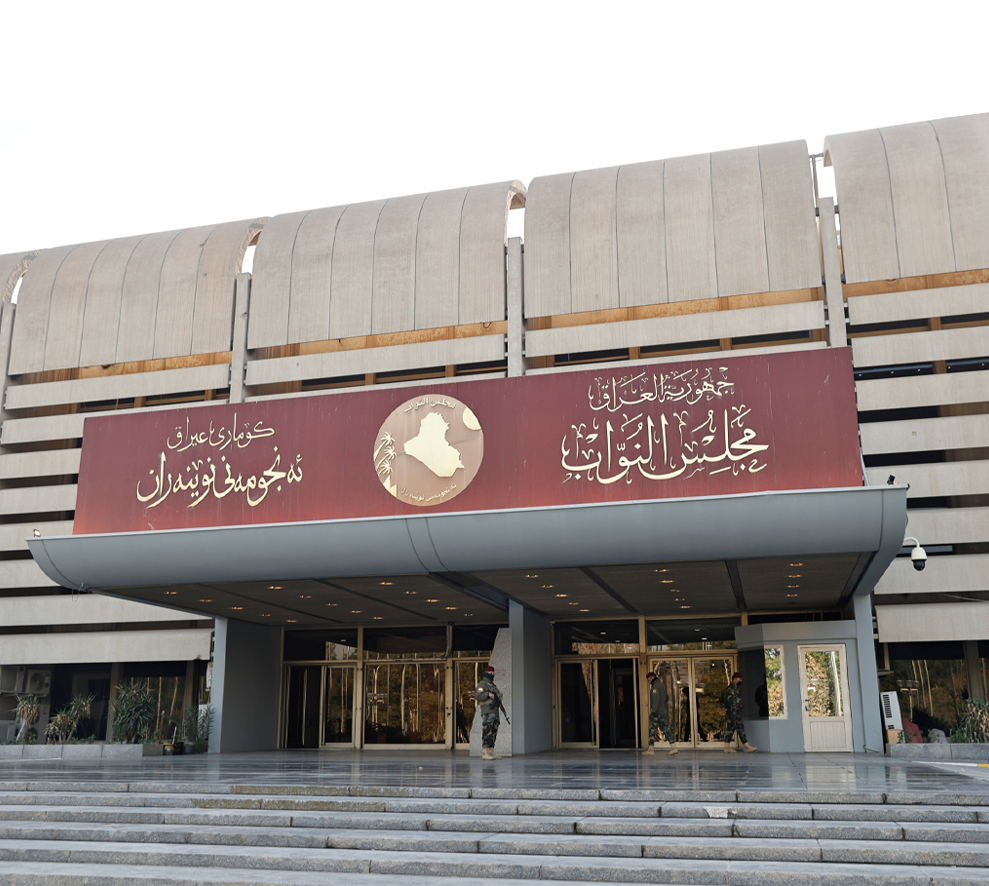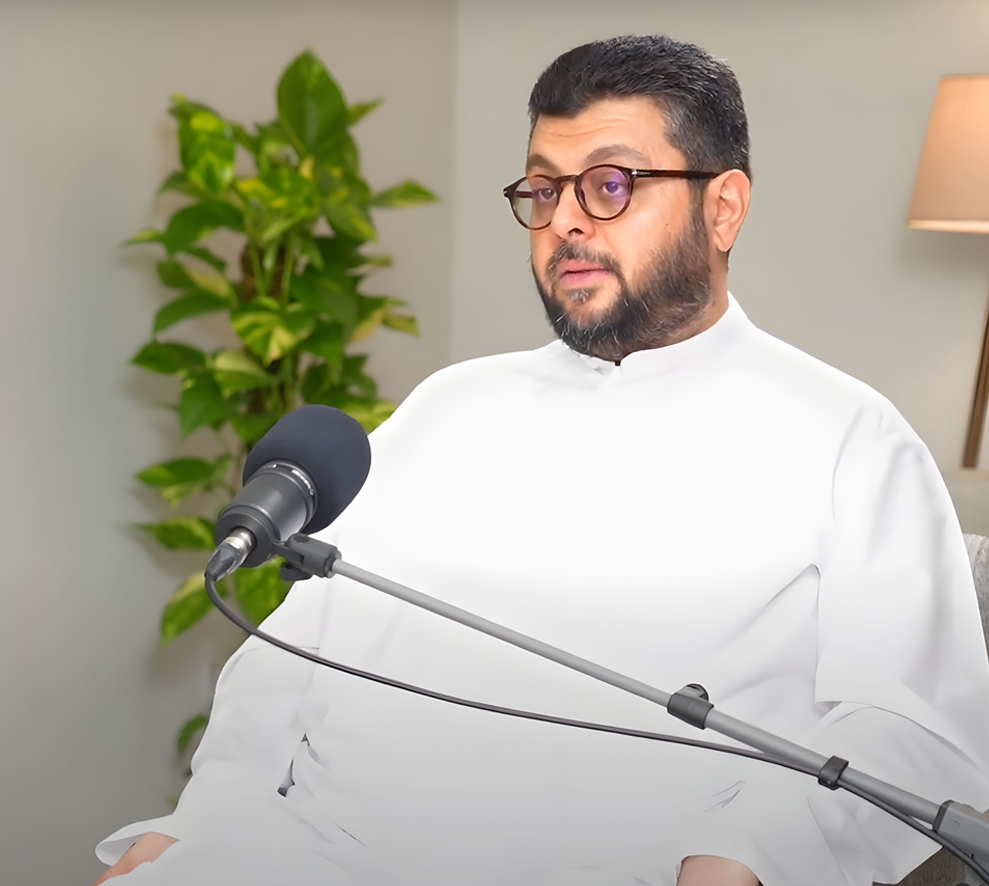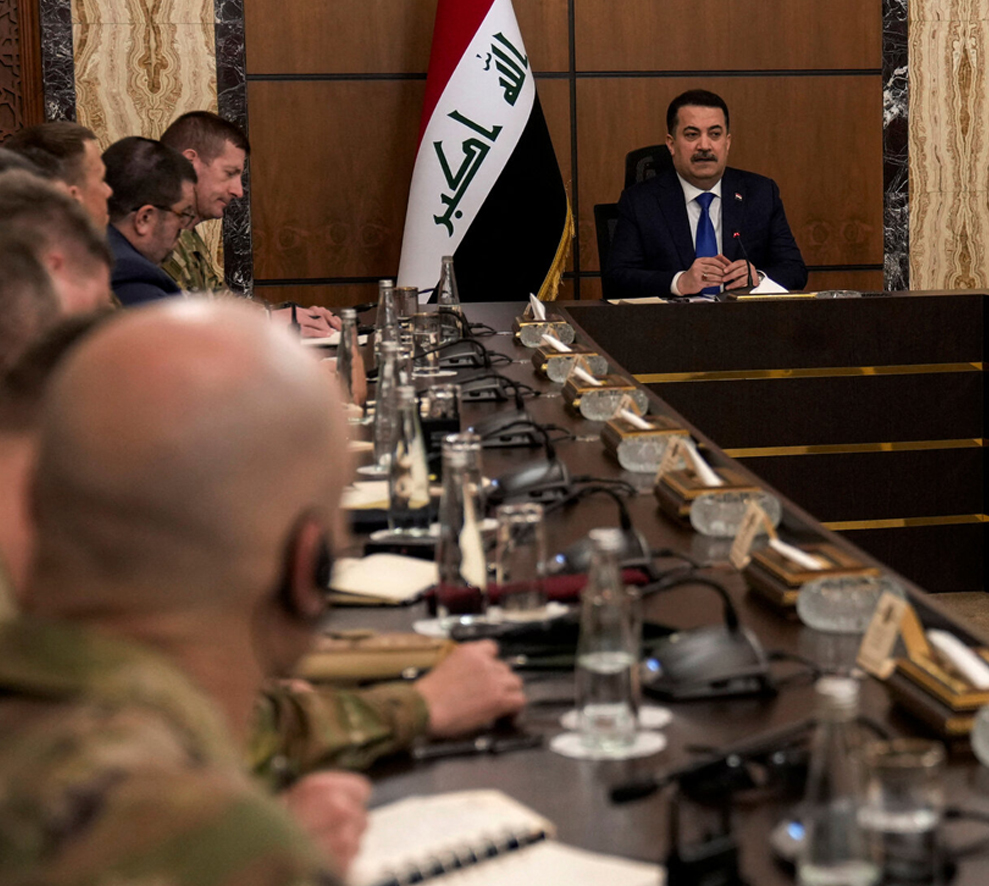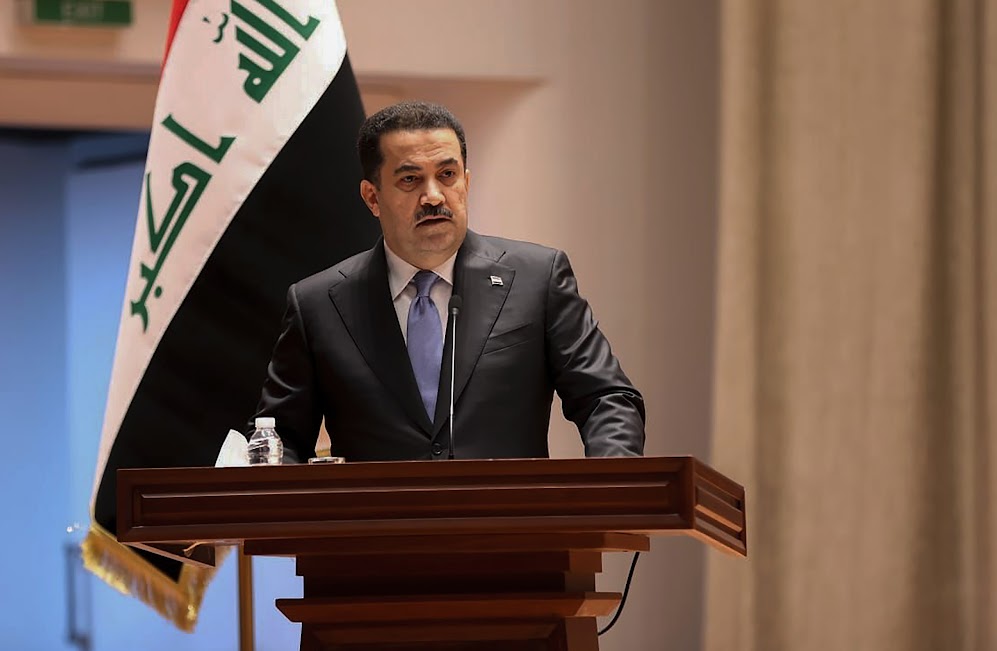The Iraqi political arena was overwhelmed by a state of anticipation and caution since the “state administration” alliance of the Coordinative Framework’s Sunni, and Kurdish forces presented Muhammad Shia’ al-Sudani as a candidate for prime minister. Many viewed al-Sudani as an independent figure capable of dealing with political parties and blocs. Others feared that his candidacy was an extension of the quota system that has prevailed since 2003 and that his government would not be able to deal with the difficult issues inherited from its predecessors.
However, al-Sudani and his government formation managed to gain the trust of the Iraqi House of Representatives on October 27, 2022. His ministerial program included ideas that combined the demands and aspirations of various Iraqi forces and movements, especially those known as “the opposition,” such as holding provincial council elections, amending the general election law within the first three months of the new government, and holding early parliamentary elections within a year. During his speech on the eve of the vote on his cabinet, al-Sudani delivered messages of trust to the Iraqi opposition, whether the Sadrist movement or the protesting public.
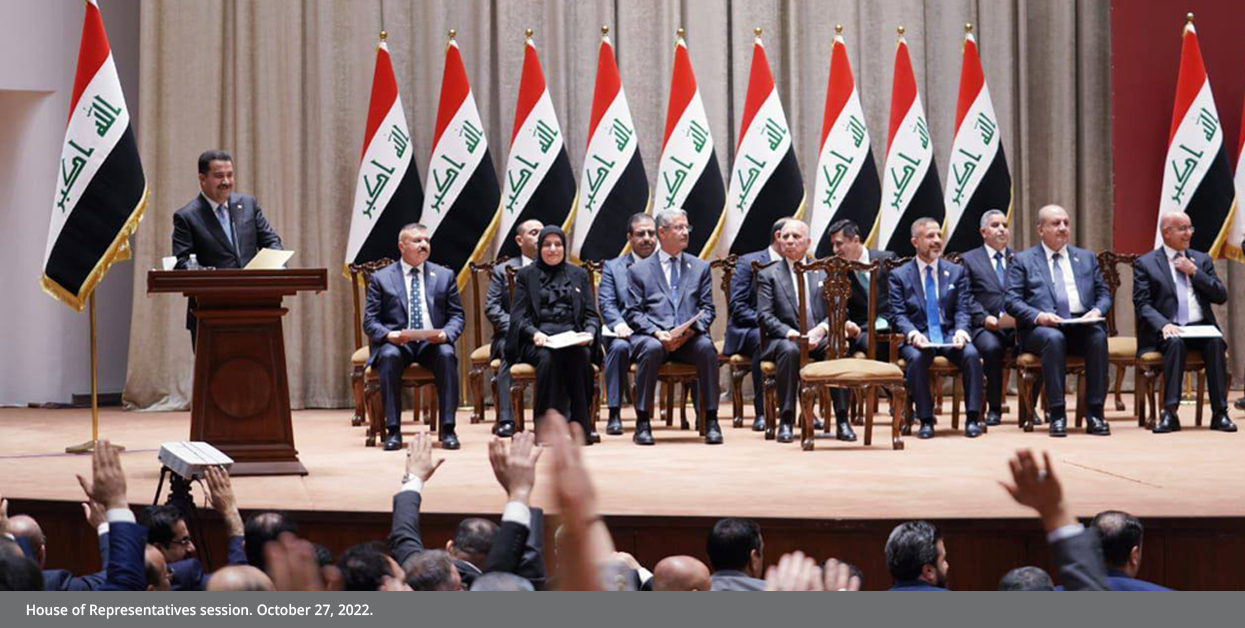
Al-Sudani aims to avoid the mistakes of the previous governments by seeking full legitimacy not just the legitimacy of parliament. This effort comes after the state and its institutions were defamed for decades. The popular trust in the governments had declined due to the spread of corruption and the deterioration of services and economic conditions. The opportunity to address these issues is possible with the partisan grassroots support for al-Sudani through the Shiite, Sunni, and Kurdish forces participating in the state administration coalition, alongside with the availability of financial abundance from oil revenues.
This is in addition to al-Sudani’s several personal advantages: his success in the previous positions he held; his non-involvement in corruption cases and issues; his balanced and moderate speeches; his affiliation, geographically speaking, to southern Iraq, which is the poorest area in the country; and his lack of allegiance to or citizenship in another country.
Perhaps these advantages are what prompted possible opponents in and outside of parliament to accept and not object to nominating him for prime minister. Accordingly, al-Sudani has favorable conditions to pursue policies that may expand his political support and help implement his plans to develop services provided to citizens.
However, there remain many challenges inherited till from previous governments. The political environment suffers a severe polarization that may make it difficult to conclude local and parliamentary elections within a year. It also complicates the agreement on a new electoral law, which, if approved, requires a period of time for the appropriate ground to be prepared before it can be implemented by the Electoral Commission.
However, it seems that al-Sudani’s program, despite being of great importance, faces two main challenges: al-Sudani does not belong to a winning parliamentary bloc and his reform project extends beyond the executive branch to the legislative and judicial authorities. Since his nomination was the result of the consensus of the parties to the state administration coalition, there is no majority bloc in parliament that needs to fulfill al-Sudani’s electoral promises or reform project.
This poses several questions. How will al-Sudani be able to pass his reform project and government program without having the largest parliamentary bloc to easily pass laws submitted to the Council by his government? And how can he balance the principle of separation of powers with his comprehensive reforms of the political system?
Comprehensive Reform as an Outline to Preserve the State
Al-Sudani presents his cross-authority reform program as a milestone whereby the state avoids facing a new wave of protests that have been ongoing since 2019. His program also avoids the sharp political polarization that that exacerbated the risks of domestic conflict and violence between the components of the Shiite movement during the crisis of stalemate while forming the government.
In addition, through his reforms al-Sudani seeks to compensate for his lack of belonging to a winning parliamentary bloc by forming a popular lever for his government to while also renewing the popular trust in the entire political system. He stresses that his program does not aim at a comprehensive change in all issues related to the previous governments. The most prominent of these reforms can be summarized as follows.
Bureaucratic Body
Iraqis relate their demands for reform to the correction of the general administrative body in the state. Many service and economic problems are caused by previous government decisions, appointments, and agreements that were always associated to party rotation policies between ministries. The minister of a particular party brings members of his party as office managers and secretaries within his ministry.
The government method shows al-Sudani’s efforts to confront the influence of parties over ministerial work and to prevent them from significantly interfering in the work of the ministry. In its first paragraph, al-Sudani program includes “Reconsidering all decisions and appointments of the caretaker government, especially economic and security decisions, and random appointments.” To help ensure a smooth transition, the prime minister also instructed ministers during his first cabinet meeting to not appoint their office managers from employees outside their ministries.
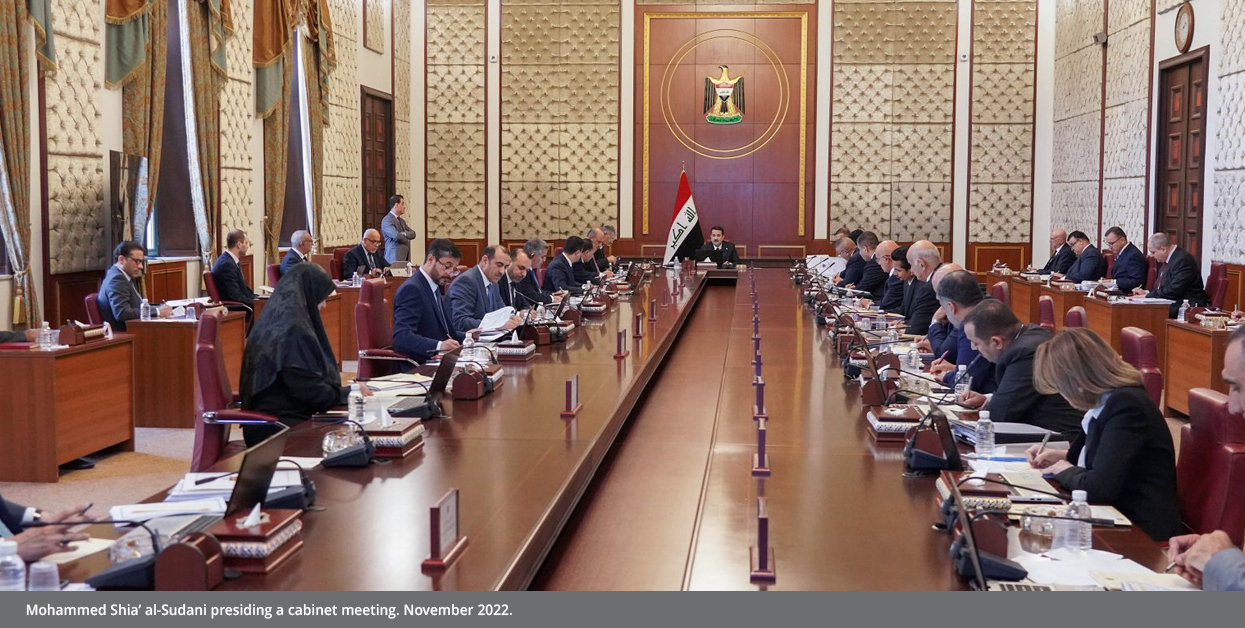
Executive Authority
Al-Sudani has taken a number of tracks targeting the work of the executive authority. These include:
- Legal work to consolidate and approve these reforms based strictly on law and not whether they target a particular political party or cancel top-ranks appointments made after October 8, 2021, whenthe previous Al-Kazemi government turned into a caretaker government.
- Media work to target corruption and promote the fight against it in order to gain popular support prior to starting procedures to hold the corrupt accountable.
- Sectoral work to identify and address each issue within each sector individually. Al-Sudani issued recommendations to start with health, security, and electricity.
Legislative and Judicial Authorities
In addition to executive reforms, there are other issues that Al-Sudani believes are in need to be urgently corrected. He also believes that the comprehensive reform goes beyond the executive authority to include all three pillars of the political system: executive, legislative, and judicial.
To that end, al-Sudani included in its ministerial program, a number of draft laws, including enacting the Federal Council Law and the Federal Court Law within six months of his appointment as prime minister, amending the Parliamentary Elections Law within three months, holding elections within a year, conducting a legal review of the General Amnesty Law, concluding legislation of the Anti-Terrorism Law, enacting the law repealing the dissolved Revolutionary Command Council Law, amending the Martyrs Foundation Law, enacting the National Security Council Law, reviewing Law No. 27 and referring its file to the judiciary for a decision, and holding the elections of the Kirkuk Governorate at the same time with the rest of the governorates.
Reform Via Parallel Legal Authority
Since 2003, many successive governments in Iraq adopted parliamentary laws and legislation to change some political practices, confront their own opponents, or pass their projects. This is what has come to be known as the parallel legal authority.” Obtaining the trust of the government’s larger parliamentary bloc or when this trust is established by the government enables the government to pass drafts of laws without the opposition being able to block them. In addition, there are 51 deferred articles in the 2005 Iraqi constitution followed by the phrase “to be enacted upon a law.” This gives the House of Representatives the right to legislate and postpone laws as required by popular interest.
The federal court also has the power to interpret constitutional articles and thus change their political aftermath, especially the more controversial articles. Thus, the role of the constitutional court is important not only in interpreting texts, but in determining the political practice associated with it. This is also true of its role in judging cases involving appointments and administrative positions.
There is also a legal duality when applying and implementing some law texts. For instance, the parliamentary majority demanded by the Sadrist movement to form the government after winning the largest number of parliamentary seats in the 2021 elections. The federal court’s 2021 interpretation of Article 76 of the Constitution stated that “the largest bloc is the one that is formed within the parliament, and is not necessarily the winner of the elections.” Practically speaking, this means that the Sadrist movement was demanding the formation of the government from a legal point of view, in addition to the legality of nominating the state administration coalition to the prime minister after the Sadrists withdrew.
It seems that Prime Minister al-Sudani is using these legal mechanisms to change the leadership that he believes will derail his government program. While al-Sudani previously implied that he would not target certain persons, he fired 169 governors, deputy directors, security leaders, advisers, and managers in various government departments and ministries whose appointments were marred by legal violations based on a May 2022 Administrative Court ruling that the powers of the caretaker government are limited to narrow administrative and financial scopes that do not include appointments to the special grade.
Investing al-Sudani’s Previous Experience to Enhance His Government Program
It is clear from Al-Sudani’s government program and official speeches that he focuses on programs in which he has experience as the former minister of four departments: Labor and Social Affairs, Industry, Trade, and, lastly, Human Rights. Therefore, his government program tends to focus on issues related to health insurance, social welfare, industry, and economic issues.
Moreover, the prime minister’s determination to fight corruption is clear. This is the most serious choice for his government, similar to any Iraqi government that adopts a reformist approach. Al-Sudani underscored this fact when he said the country is facing a “pandemic of corruption.” The prime minister is supported by a personal and professional biography of integrity free from charges or even suspicion of corruption. Given the security establishment’s key role in supporting his efforts to combat corruption, al-Sudani makes an added effort in his meetings with security leaders to remind them of their role in this regard.
The prime minister also seeks to expand and finetune the government services provided to citizens and earn high marks of popular satisfaction for the services provided by the state government and its institutions, especially electricity and clean water. Al-Sudani called on officials to begin developing a plan to begin improvements on the national electrical grid to begin in the summer of 2023, and he encouraged the governor of Basra to sign contracts with competent companies to quickly resolve issues concerning its water desalination project. Unreliable electrical service and access to clean water have long been a cause for public outrage.
In conclusion, Al-Sudani presents his government program and comprehensive reform project to bridge the gap between the state and its institutions, and to obtain popular trust by working to correct the issues that have been a source of public concern for years. This is important in preventing the state from facing new waves of protest.
Political blocs and the elites realize that the Iraqi state is facing the risk of lawlessness due to political polarization and a significant loss of popular trust. By giving Al-Sudani an opportunity to pass his reform project and government program, they are helping Al-Sudani preserve what remains of the political system and its components of the majority and the opposition—whatever their names might be.
The opinions expressed in this study are those of the author. Strategiecs shall bear no responsibility for the views and/or opinion of its author on security, economic, social, and other issues, as they do not necessarily represent the views of the Think Tank.
Keep in touch
In-depth analyses delivered weekly.







